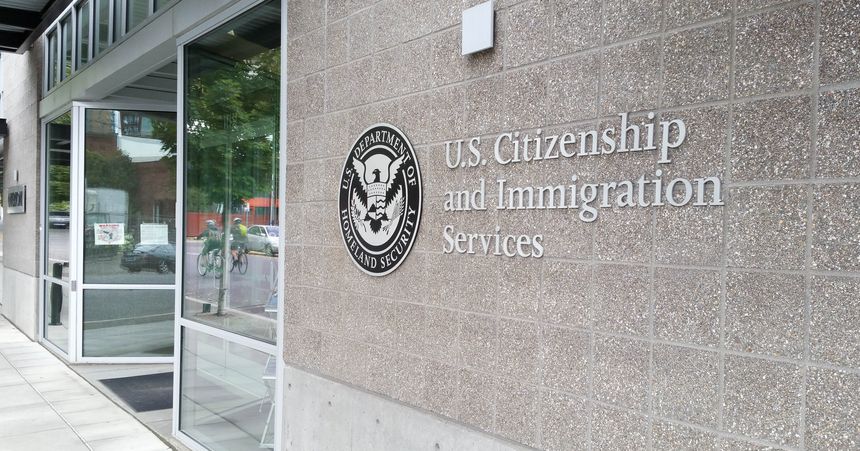“As Secretary Noem delegated lawful authorities to expand the agency’s law enforcement capabilities, this rule allows us to fulfill our critical mission. This historic moment will better address immigration crimes, hold those that perpetrate immigration fraud accountable, and act as a force multiplier for DHS and our federal law enforcement partners, including the Joint Terrorism Task Force.”
–Joseph Edlow, USCIS Director
On September 5, 2025, the Department of Homeland Security (“DHS”) announced its Final Rule implementing Secretary of Homeland Security Kristi Noem’s recent delegation of her law enforcement authority to the Director of United States Citizenship and Immigration Services (“USCIS”). The delegation of authority imbues USCIS with the immigration law enforcement powers that were once only reserved for its sister agencies: U.S. Immigration and Customs Enforcement (“ICE”) and U.S. Customs and Border Protection (“CBP”). According to DHS, it decided to provide USCIS with law enforcement capabilities to better align the agency with the immigration priorities outlined in President Donald Trump’s Executive Order, “Protecting the American People Against Invasion.”
When the Final Rule went into effect on October 6, 2025, the USCIS Fraud Detection and National Security Directorate (“FDNS”) became the agency’s newest law enforcement unit. USCIS established FDNS in 2004 to spearhead the agency’s fraud and national security investigations, but FDNS relied on ICE and CBP to take enforcement actions against the wrongdoers it discovered. That is no longer the case. Instead, newly designated USCIS Special Agents can take its own enforcement actions against wrongdoers. USCIS is authorized to recruit and hire for this newly created position; however, the USCIS Director has the authority to designate other USCIS subsections and individuals with law enforcement capabilities. As of October 6, 2025, those capabilities include the power to: (1) carry firearms and use deadly and non-deadly force; (2) execute detainers, search warrants, arrest warrants, and removal warrants; (3) arrest persons for felonies and crimes committed in their presence; (4) inspect aliens seeking admission into the United States; (5) expeditiously remove undocumented immigrants (or release them on bond), and (6) present for prosecution those who allegedly violated U.S. immigration laws.
Given USCIS’s traditional role in reviewing and issuing decisions on immigration benefit requests, the decision to grant USCIS Special Agents the authority to arrest individuals for any crime committed in their presence—not just felonies—is significant. “Any crime” may include being present in the U.S. with fraudulent, incorrect, or expired immigration documents, or failing to produce immigration documents upon request. What were once USCIS administrative inquiries, such as fraud assessments, compliance reviews, and site visits, now have a criminal component, and can lead to the arrest, detention, and expedited removal of undocumented or improperly documented individuals discovered during these inquiries.
To prepare for USCIS’s new law enforcement capabilities, employers may want to take the following recommended measures:
- Ensure employees understand that as of October 6, 2025, certain designated USCIS officials have law enforcement authority, including the ability to immediately arrest and remove employees for immigration offenses.
- Review and revise procedures for when USCIS (including FDNS) or ICE agents conduct a site visit. Procedural changes may include designating a corporate point of contact for the agency, refining the definitions of areas subject to search, and offering training on how to properly assess the validity of an arrest warrant.
- Ensure activities of foreign visitors who entered the United States via DHS’s Electronic System For Travel Authorization (“ESTA”) or pursuant to Temporary Business Visitor (“B-1”) Visa perform acceptable business visitor activities; and that they do not work.
- Ensure agreements with temporary staffing agencies and independent contractors require all individuals to be work-authorized. If these terms are already in place, consider conducting audits to verify compliance.
- Ensure employees have access to the latest copies of any immigration documents filed or obtained by the company on their behalf, including their most recent application or petition for employment-based status, proof of ongoing work authorization, and proof of maintenance of their legal status.
- Review employee job descriptions, locations, and salary to ensure they align with the information provided in the employee’s approved employment-based visa petition. If necessary, amend petitions to align with changes since the time of filing.
- Perform an audit of your I-9 records and other compliance related records to ensure they are accurate, up-to-date, and in compliance with U.S. immigration laws.
- Offer training to employees on their rights when approached with questions or demands by law enforcement officers from USCIS, ICE, or CBP.
By taking these measures, both employers and employees can have added peace of mind during this period of increased immigration law enforcement activity. As always, hiring undocumented workers can lead to DHS investigations, the assessment of monetary penalties, and, in severe cases, criminal prosecution.
Attorneys at Womble Bond Dickinson have the experience to assist you in taking these responsible measures and other immigration-related services.


/Passle/6878183c1547331efeed13be/SearchServiceImages/2026-01-15-18-07-35-285-69692ce7b86545c478e79323.jpg)
/Passle/6878183c1547331efeed13be/SearchServiceImages/2026-01-12-14-33-44-249-69650648ab784af100f2427b.jpg)
/Passle/6878183c1547331efeed13be/SearchServiceImages/2026-01-09-14-45-04-794-69611470d42b6e4a58404ecb.jpg)